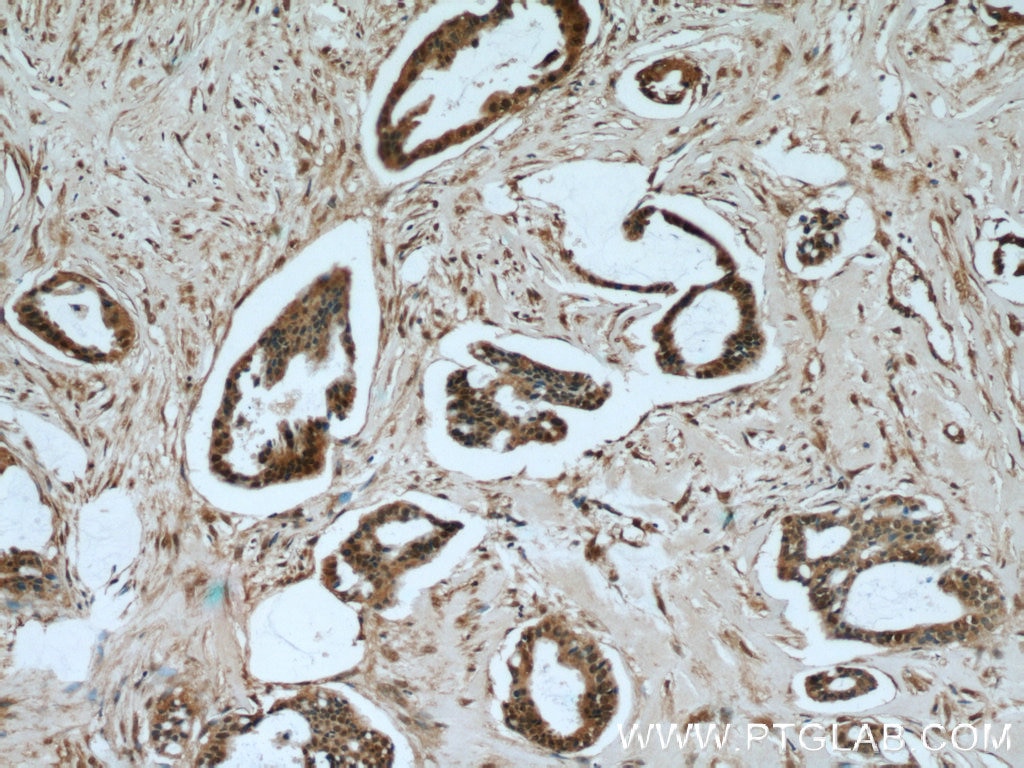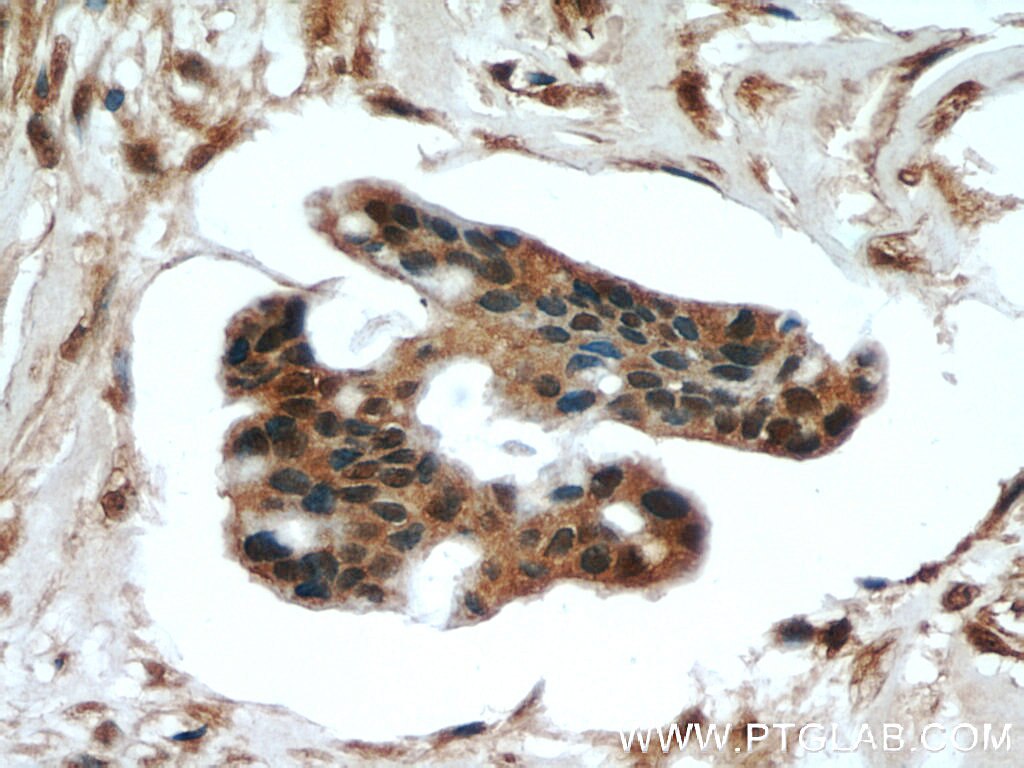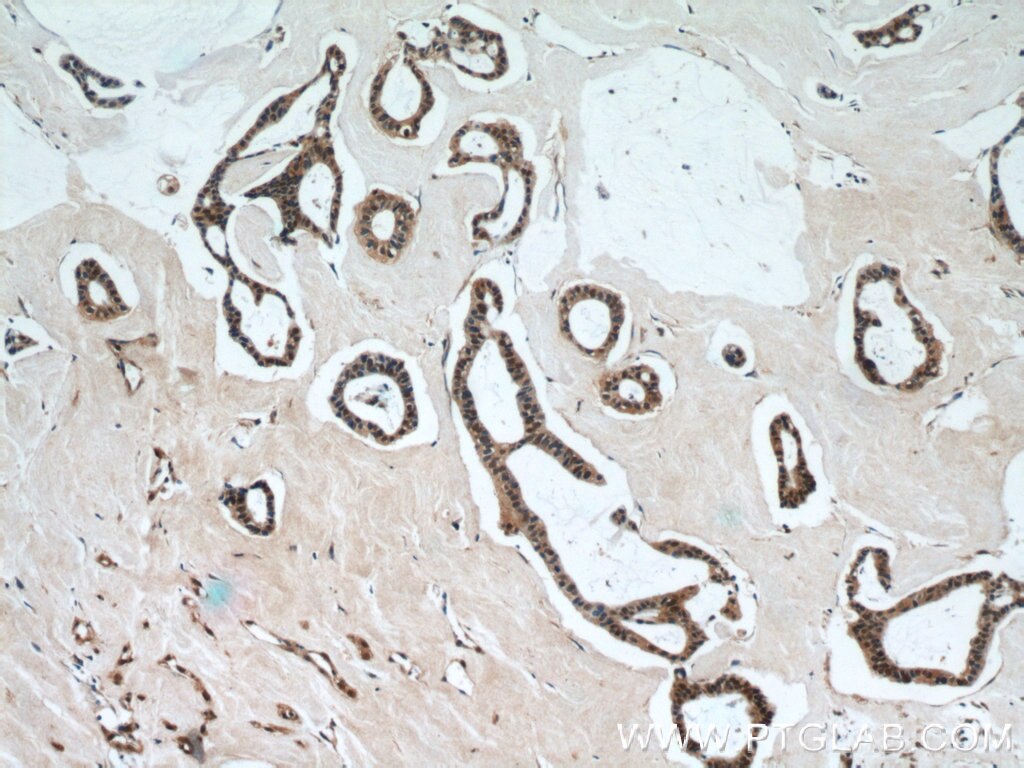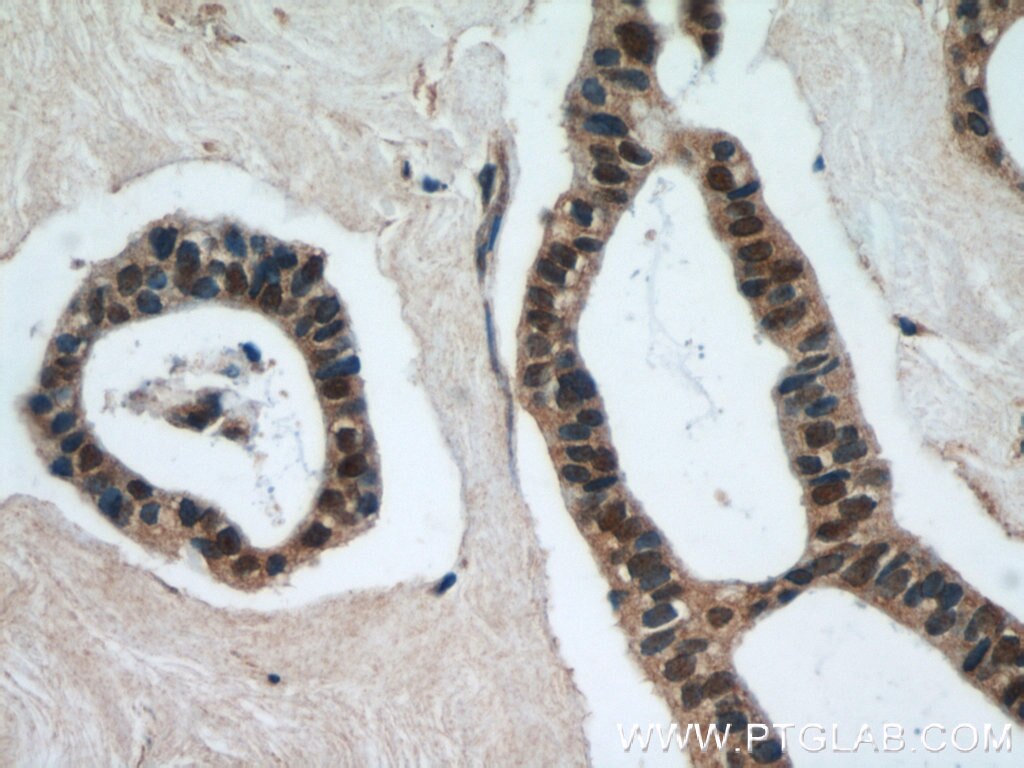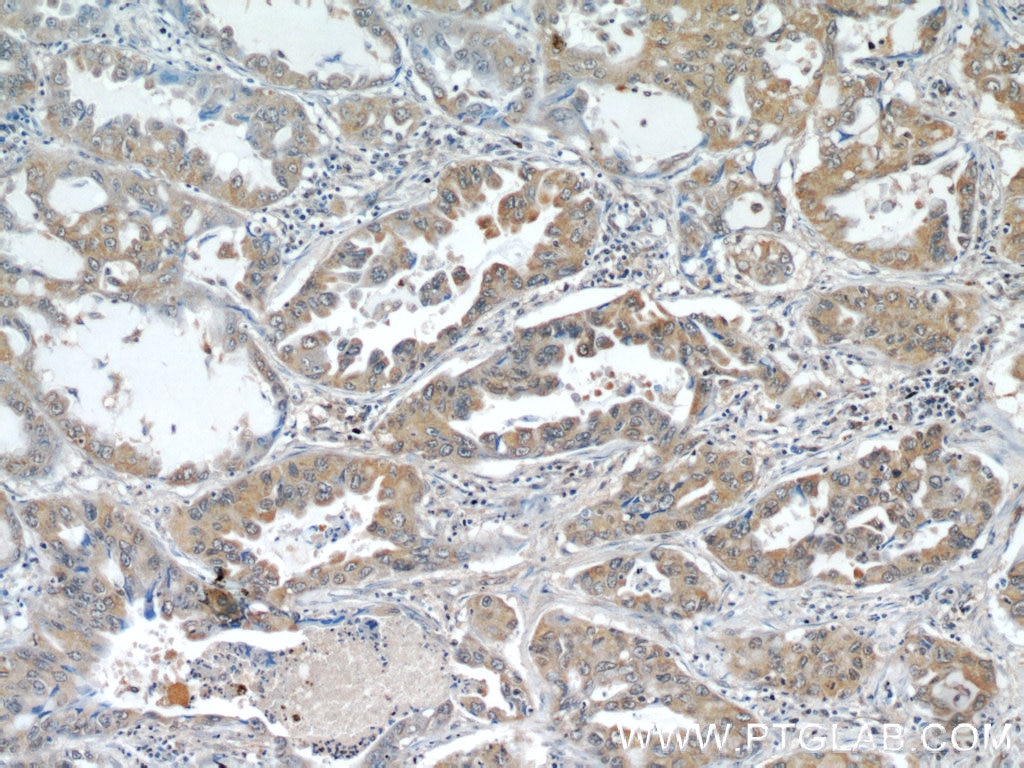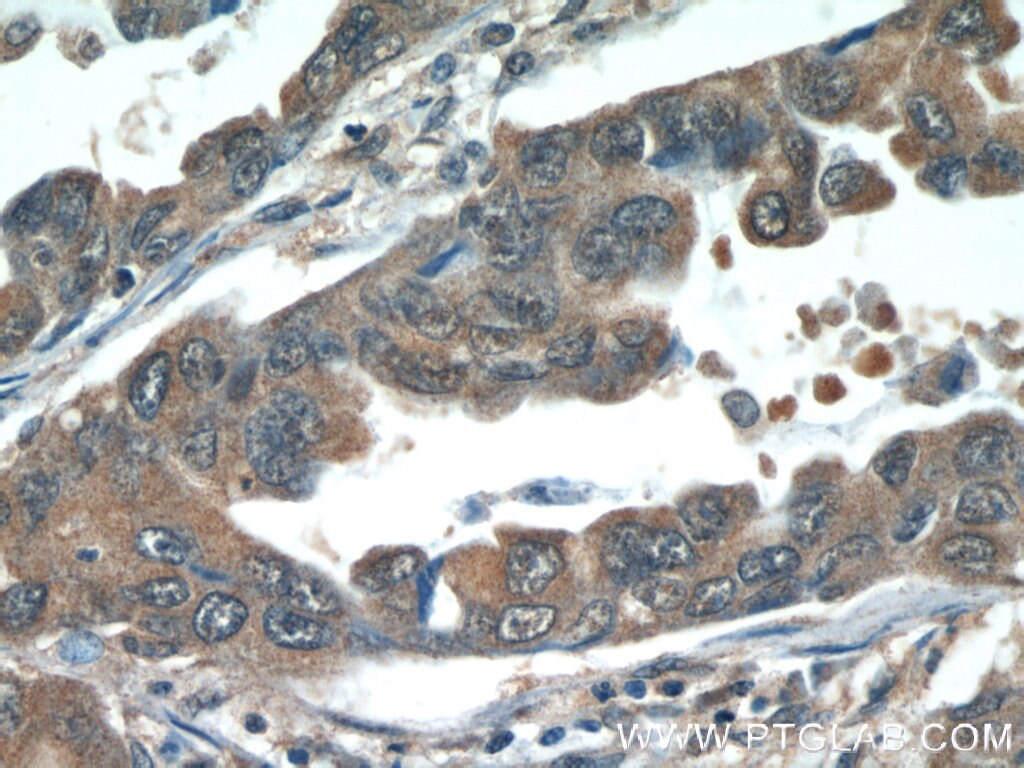Anticorps Monoclonal anti-SMAD4
SMAD4 Monoclonal Antibody for ELISA
Hôte / Isotype
Mouse / IgG2a
Réactivité testée
Humain, rat, souris
Applications
WB, IF, ELISA
Conjugaison
Non conjugué
CloneNo.
3H5H1
N° de cat : 60182-1-Ig
Synonymes
Galerie de données de validation
Applications publiées
| WB | See 1 publications below |
| IF | See 1 publications below |
Informations sur le produit
60182-1-Ig cible SMAD4 dans les applications de WB, IF, ELISA et montre une réactivité avec des échantillons Humain, rat, souris
| Réactivité | Humain, rat, souris |
| Réactivité citée | Humain |
| Hôte / Isotype | Mouse / IgG2a |
| Clonalité | Monoclonal |
| Type | Anticorps |
| Immunogène | SMAD4 Protéine recombinante Ag0299 |
| Nom complet | SMAD family member 4 |
| Masse moléculaire calculée | 60 kDa |
| Poids moléculaire observé | 63 kDa |
| Numéro d’acquisition GenBank | BC002379 |
| Symbole du gène | SMAD4 |
| Identification du gène (NCBI) | 4089 |
| Conjugaison | Non conjugué |
| Forme | Liquide |
| Méthode de purification | Purification par protéine A |
| Tampon de stockage | PBS with 0.02% sodium azide and 50% glycerol |
| Conditions de stockage | Stocker à -20°C. Stable pendant un an après l'expédition. L'aliquotage n'est pas nécessaire pour le stockage à -20oC Les 20ul contiennent 0,1% de BSA. |
Informations générales
Mammalian homologs of the Drosophila Mad gene include Smad1, Smad2, Smad3, Smad4 (DPC4), Smad5, Smad6, Smad7 and Smad8. Smad1 and Smad5 are effectors of BMP2 and BMP4 function while Smad2 and Smad3 are involved in TGF and activin-mediated growth modulation. Smad4 has been shown to mediate all of the above activities through interactionwith various Smad family members . Smad6 and Smad7 regulate the response to activin/ TGF signaling by interfering with TGF -mediated phosphorylation of other Smad family members. This antibody is a mouse monoclonal antibody raised against an internal region of human SMAD4.
Protocole
| Product Specific Protocols | |
|---|---|
| IHC protocol for SMAD4 antibody 60182-1-Ig | Download protocol |
| Standard Protocols | |
|---|---|
| Click here to view our Standard Protocols |
Publications
| Species | Application | Title |
|---|---|---|
Br J Pharmacol Dual targeting chimeric antigen receptor cells enhance antitumour activity by overcoming T cell exhaustion in pancreatic cancer | ||
Photochem Photobiol Sci Downregulation of SMAD4 protects HaCaT cells against UVB-induced damage and oxidative stress through the activation of EMT |
